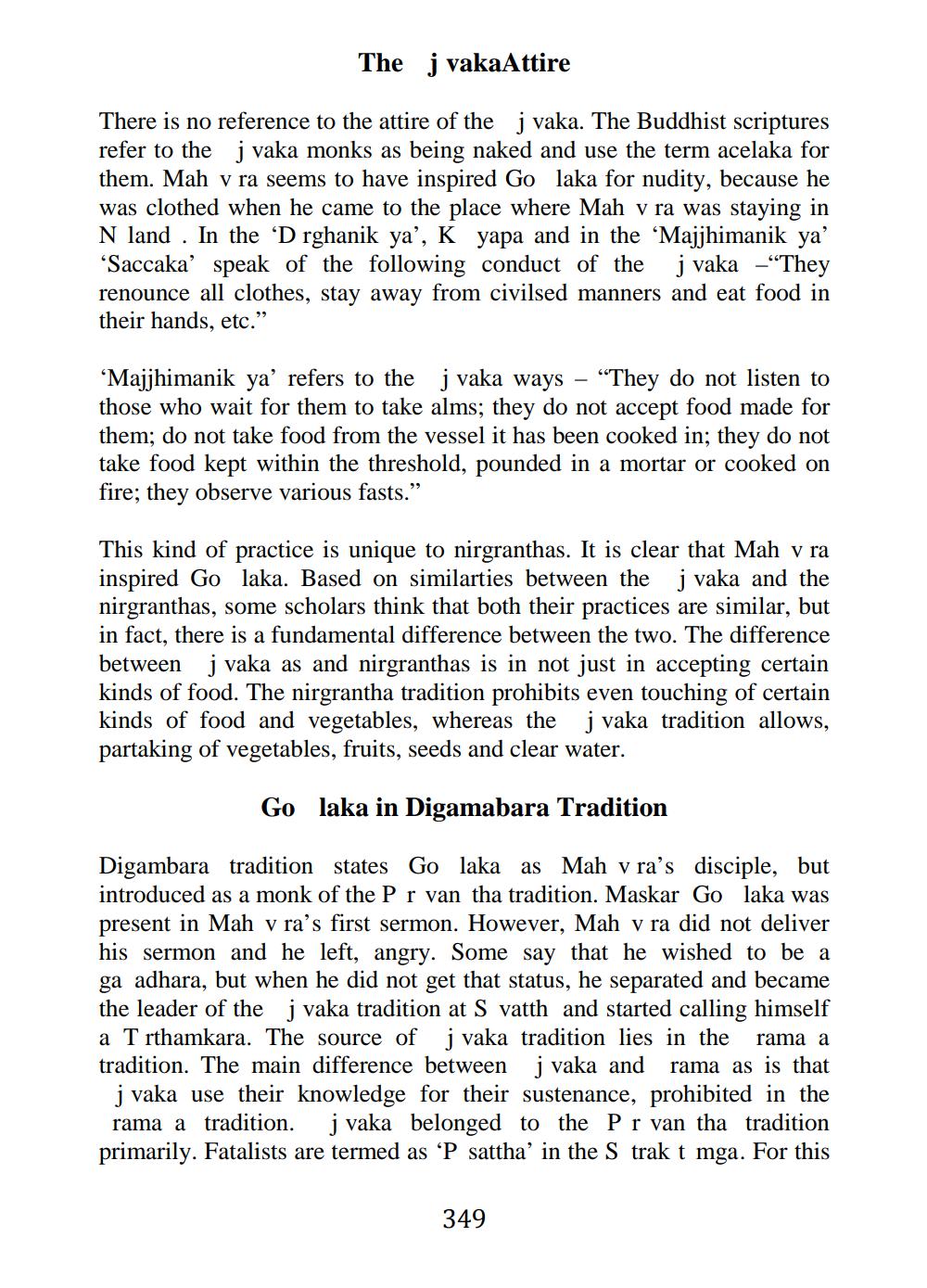________________
The j vakaAttire
There is no reference to the attire of the j vaka. The Buddhist scriptures refer to the j vaka monks as being naked and use the term acelaka for them. Mah v ra seems to have inspired Go laka for nudity, because he was clothed when he came to the place where Mah v ra was staying in N land . In the 'Drghanik ya’, K yapa and in the ‘Majjhimanik ya’ Saccaka' speak of the following conduct of the j vaka _“They renounce all clothes, stay away from civilsed manners and eat food in their hands, etc.”
‘Majjhimanik ya' refers to the j vaka ways – “They do not listen to those who wait for them to take alms; they do not accept food made for them; do not take food from the vessel it has been cooked in; they do not take food kept within the threshold, pounded in a mortar or cooked on fire; they observe various fasts.”
This kind of practice is unique to nirgranthas. It is clear that Mah v ra inspired Go laka. Based on similarties between the j vaka and the nirgranthas, some scholars think that both their practices are similar, but in fact, there is a fundamental difference between the two. The difference between j vaka as and nirgranthas is in not just in accepting certain kinds of food. The nirgrantha tradition prohibits even touching of certain kinds of food and vegetables, whereas the j vaka tradition allows, partaking of vegetables, fruits, seeds and clear water
Go laka in Digamabara Tradition
Digambara tradition states Go laka as Mah v ra's disciple, but introduced as a monk of the P r van tha tradition. Maskar Go laka was present in Mah v ra's first sermon. However, Mah v ra did not deliver his sermon and he left, angry. Some say that he wished to be a ga adhara, but when he did not get that status, he separated and became the leader of the j vaka tradition at S vatth and started calling himself a T rthamkara. The source of j vaka tradition lies in the rama a tradition. The main difference between j vaka and rama as is that
j vaka use their knowledge for their sustenance, prohibited in the rama a tradition. j vaka belonged to the P r van tha tradition primarily. Fatalists are termed as 'P sattha' in the S trakt mga. For this
349




